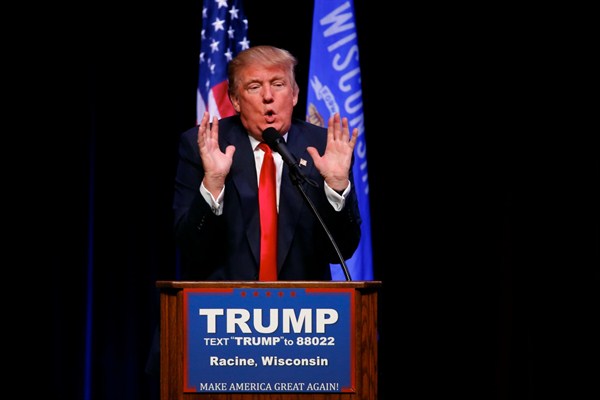Donald Trump’s foreign policy vision, which he articulated in recent interviews with The New York Times and The Washington Post, has been greeted by many international affairs pundits with horror, derision and disdain. One thing it should not be, however, is dismissed.
To be sure, Trump, the frontrunner for the Republican presidential nomination, expresses his views in a provocative and confrontational manner. The views themselves certainly stand in stark contrast to current U.S. foreign policy orthodoxy, a product of more than 70 years of evolution since World War II. Nevertheless, though iconoclastic, they are not quite as unprecedented as many have portrayed them.
To begin with, Trump’s tough language on getting U.S. allies and partners to shoulder a greater share of security costs and burdens is perhaps counterproductive, but it reflects the long-recognized problem of security free-riding by U.S. allies and partners that confronts every American president; Barack Obama expressed his own frustration with the phenomenon in a recent interview in The Atlantic. It is also consistent with years of U.S. alliance management in both Asia and Europe.

